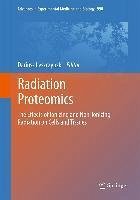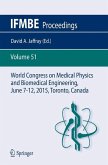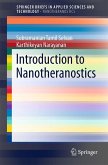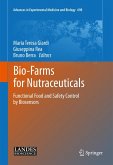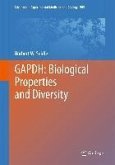Proteomics is widely used in search of biomarkers, pharmacology, clinical research and toxicology. With the help of proteomics large amount of information about the physiology of living cells can be obtained in a single experiment. Combining this information with data from genomics and other high-throughput screening techniques like transcriptomics and metabolomics allows gaining new insights into physiology of life and diseases.
The area of research that is still waiting for the proteomics "boom" is the search for the biological effects of radiation. It is relatively much known about the effects of high doses of radiation, both ionizing and non-ionizing. However, much less is known about the effects of low or very low doses of radiation, to which people are often exposed in their every day life. The effects of the low doses of ionizing radiation (e.g. bystander effect) or low doses of non-ionizing radiation (e.g. effect of radiation emitted by wireless communication devices)are not yet reliably established. Often these effects are small and difficult to discover and to replicate. One of the limiting factors in the research of low dose radiation effects is often the lack of the knowledge of the cellular target molecules.
Proteomics, the high-throughput screening of expression and activity of proteins is very well suited for the research aiming at discovery of molecular targets of low dose radiation. Proteomics approach seems to be particularly well suited for studying biological effects of low dose radiation because it might reveal effects that are not possible to predict based on the presently available knowledge concerning the effects of the high doses of radiation.
Search through the published scientific literature shows that to date was published only a very limited number of proteomics studies examining effects of radiation. This book, Radiation Proteomics, presents the current status the research of radiation effects using proteomics approach. The book begins with the review of current status and the future direction in the development of proteomics methods. This is followed by chapters dealing with the effects of ionizing and non-ionizing radiation on cells, tissues and body fluids.
The editor of the book, Research Professor Dariusz Leszczynski, is known for studies that introduced, some 10 years ago, the high-throughput screening techniques of proteomics and transcriptomics into the main stream of the research on the biological effects of the non-ionizing radiation emitted by the wireless communication devices. In recent years he has also done studies examining effects of low-dose ionizing radiation on cellular proteome.
The area of research that is still waiting for the proteomics "boom" is the search for the biological effects of radiation. It is relatively much known about the effects of high doses of radiation, both ionizing and non-ionizing. However, much less is known about the effects of low or very low doses of radiation, to which people are often exposed in their every day life. The effects of the low doses of ionizing radiation (e.g. bystander effect) or low doses of non-ionizing radiation (e.g. effect of radiation emitted by wireless communication devices)are not yet reliably established. Often these effects are small and difficult to discover and to replicate. One of the limiting factors in the research of low dose radiation effects is often the lack of the knowledge of the cellular target molecules.
Proteomics, the high-throughput screening of expression and activity of proteins is very well suited for the research aiming at discovery of molecular targets of low dose radiation. Proteomics approach seems to be particularly well suited for studying biological effects of low dose radiation because it might reveal effects that are not possible to predict based on the presently available knowledge concerning the effects of the high doses of radiation.
Search through the published scientific literature shows that to date was published only a very limited number of proteomics studies examining effects of radiation. This book, Radiation Proteomics, presents the current status the research of radiation effects using proteomics approach. The book begins with the review of current status and the future direction in the development of proteomics methods. This is followed by chapters dealing with the effects of ionizing and non-ionizing radiation on cells, tissues and body fluids.
The editor of the book, Research Professor Dariusz Leszczynski, is known for studies that introduced, some 10 years ago, the high-throughput screening techniques of proteomics and transcriptomics into the main stream of the research on the biological effects of the non-ionizing radiation emitted by the wireless communication devices. In recent years he has also done studies examining effects of low-dose ionizing radiation on cellular proteome.
Dieser Download kann aus rechtlichen Gründen nur mit Rechnungsadresse in A, B, BG, CY, CZ, D, DK, EW, E, FIN, F, GR, HR, H, IRL, I, LT, L, LR, M, NL, PL, P, R, S, SLO, SK ausgeliefert werden.

